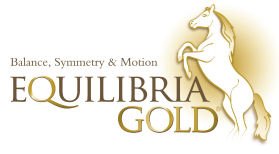Massage for horses.
As mentioned on The History of Massage page, massage and touch have been used by horses from the beginning of their existence; for example, licking and rubbing a newborn foal to clean, stimulate and aid the breathing process or during grooming sessions between herd companions. Equine massage therapy on horses is merely an extension of this natural instinct and in most cases is enjoyed by the horses on which it is performed, unless they are in pain or are particularly sensitive, which is understandable.
BENEFITS OF EQUINE MASSAGE:
Help prevent injury - tight muscles put tendons at risk
Help identify small “niggles” before they become serious problems
Relax muscle spasms before they can develop into more serious trigger or stress points
Speed up recovery after injury by stimulating the circulatory system
Improve muscle tone and flexibility
Improve joint mobility
Increase range of motion
Aid in the removal of toxic waste products such as lactic acid
Improve lymphatic flow (a major factor of the immune system)
Increase heart function and stamina
Calm a tense horse or revive a lazy horse
Stimulate sebaceous gland function for a glossy coat
Improve skin condition
Because your horse will love you for it!

“Horses will speak to us, all we have to do is listen”.
It would be unheard of these days for a professional athlete not to have a team of therapists, including sports massage, to ensure they are in their optimum condition for peak performance or quick recovery from injury. Why, therefore, should it be any different for horses? The demands placed on the modern-day domesticated horse are great and all horses and ponies can usually benefit in some way from an equine massage session. It is important to remember that whilst equine massage therapy is directly applied to muscles, soft tissue and skin, it also positively affects the circulatory systems (vascular and lymphatic) and nervous system to assist in the overall wellbeing of the horse, which is why is can also be extremely beneficial to horses on box rest or retired/out of work.
Although we don’t speak the language of the horse, they can communicate with us and often do so through their body language, behaviour and temperament etc. The important thing for us, as horse owners, carers and riders, is to intuitively listen to our horses and pick up on the changes in behaviour which is their way of telling us how they are feeling and if they are in any pain or discomfort.
Contact us.
hannah@equine-therapy.co.uk
07572 982810
Based in Coalville, Leicestershire.
Offering Equine massage throughout the the Midlands.
